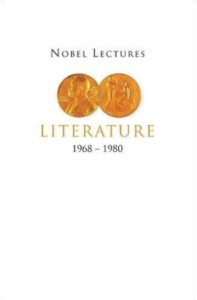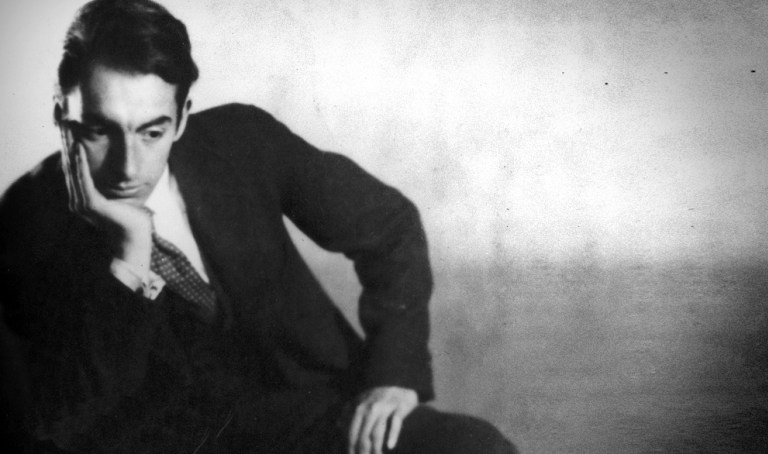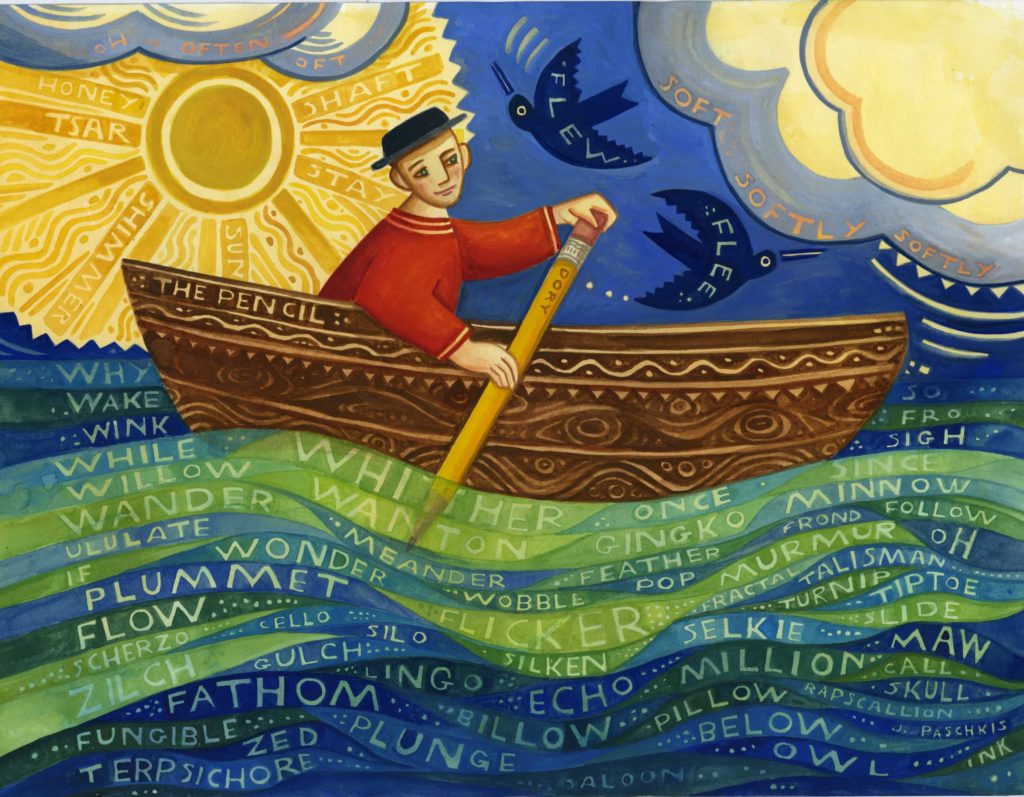Neruda’s Beautiful, Humanistic Nobel Literature Prize Acceptance Speech
NOBEL LAUREATES, 26 Aug 2024
Maria Popova | The Marginalian – TRANSCEND Media Service
Against the Illusion of Separateness
“There is no insurmountable solitude. All paths lead to the same goal: to convey to others what we are. And we must pass through solitude and difficulty, isolation and silence in order to reach forth to the enchanted place where we can dance our clumsy dance…”
 The great Chilean poet and diplomat Pablo Neruda (July 12, 1904–September 23, 1973) was only a small boy, just over the cusp of preconscious memory, when he had a revelation about why we make art. It seeded in him a lifelong devotion to literature as a supreme tool that “widens out the boundaries of our being, and unites all living things.”
The great Chilean poet and diplomat Pablo Neruda (July 12, 1904–September 23, 1973) was only a small boy, just over the cusp of preconscious memory, when he had a revelation about why we make art. It seeded in him a lifelong devotion to literature as a supreme tool that “widens out the boundaries of our being, and unites all living things.”
Although his father discouraged his precocious literary aspirations, the young Neruda found a creative lifeline in the poet, educator, and diplomat Gabriela Mistral — the director of his hometown school. Mistral — who would later become the first Latin American woman awarded the Nobel Prize in Literature and Chilean consul in Madrid, a post in which Neruda would succeed her during his own diplomatic career — recognized and nurtured the boy’s uncommon talent. Fittingly, Neruda’s first published piece, written when he was only thirteen and printed in a local daily newspaper, was an essay titled “Enthusiasm and Perseverance.”
These twin threads ran through the length of his life, from his devoted diplomatic career to his soulful, sorrowful, yet buoyant poetry. His landmark collection Twenty Love Poems and a Song of Despair, composed before he turned twenty, is to this day the most widely read book of verse in Latin literature and contains some of the truest, most beautiful insight into the life of the heart humanity has ever committed to words.
By the time he was awarded the Nobel Prize in Literature less than two years before his death, Neruda had become an icon. Gabriel García Márquez, whose own subsequent Nobel Prize acceptance speech echoed Neruda’s humanistic ideals, considered him “the greatest poet of the twentieth century in any language.”
On December 13, 1971, Neruda took the podium in Stockholm to deliver an extraordinary acceptance speech, later included in Nobel Lectures in Literature, 1968–1980 (public library). He begins with a lyrical, almost cinematic recollection of his 1948 escape to Argentina through a mountain pass when Chile’s dictatorial government issued an order for his arrest on account of his extreme leftist politics — a long, trying journey which embodied for the poet “the necessary components for the making of the poem.” He recounts:
Down there on those vast expanses in my native country, where I was taken by events which have already fallen into oblivion, one has to cross, and I was compelled to cross, the Andes to find the frontier of my country with Argentina. Great forests make these inaccessible areas like a tunnel through which our journey was secret and forbidden, with only the faintest signs to show us the way. There were no tracks and no paths, and I and my four companions, riding on horseback, pressed forward on our tortuous way, avoiding the obstacles set by huge trees, impassable rivers, immense cliffs and desolate expanses of snow, blindly seeking the quarter in which my own liberty lay. Those who were with me knew how to make their way forward between the dense leaves of the forest, but to feel safer they marked their route by slashing with their machetes here and there in the bark of the great trees, leaving tracks which they would follow back when they had left me alone with my destiny.
Each of us made his way forward filled with this limitless solitude, with the green and white silence of trees and huge trailing plants and layers of soil laid down over centuries, among half-fallen tree trunks which suddenly appeared as fresh obstacles to bar our progress. We were in a dazzling and secret world of nature which at the same time was a growing menace of cold, snow and persecution. Everything became one: the solitude, the danger, the silence, and the urgency of my mission.
Through this dangerous and harrowing journey, Neruda arrived at “an insight which the poet must learn through other people” — a profound understanding of the interconnectedness of each life with every other, echoing his childhood revelation about the purpose of art. In consonance with the Lebanese-American poet and painter Kahlil Gibran’s insight into why we create, Neruda writes:
There is no insurmountable solitude. All paths lead to the same goal: to convey to others what we are. And we must pass through solitude and difficulty, isolation and silence in order to reach forth to the enchanted place where we can dance our clumsy dance and sing our sorrowful song — but in this dance or in this song there are fulfilled the most ancient rites of our conscience in the awareness of being human and of believing in a common destiny.
Echoing physicist Freeman Dyson’s meditation on how our self-expatriation from history makes for a deep loneliness, Neruda adds:
Our original guiding stars are struggle and hope. But there is no such thing as a lone struggle, no such thing as a lone hope. In every human being are combined the most distant epochs, passivity, mistakes, sufferings, the pressing urgencies of our own time, the pace of history.
He concludes with a vision for what it would take to let go of our damaging illusion of separateness and inhabit our shared humanity:
It is today exactly one hundred years since an unhappy and brilliant poet, the most awesome of all despairing souls, wrote down this prophecy: “A l’aurore, armés d’une ardente patience, nous entrerons aux splendides Villes.” “In the dawn, armed with a burning patience, we shall enter the splendid Cities.”
I believe in this prophecy of Rimbaud, the Visionary. I come from a dark region, from a land separated from all others by the steep contours of its geography. I was the most forlorn of poets and my poetry was provincial, oppressed and rainy. But always I had put my trust in man. I never lost hope. It is perhaps because of this that I have reached as far as I now have with my poetry and also with my banner.
Lastly, I wish to say to the people of good will, to the workers, to the poets, that the whole future has been expressed in this line by Rimbaud: only with a burning patience can we conquer the splendid City which will give light, justice and dignity to all mankind.
In this way the song will not have been sung in vain.
****
Complement with Neruda’s beautiful ode to silence and this lovely picture-book about his life, then revisit other timeless Nobel Prize acceptance speeches from great writers: Toni Morrison (the first black woman awarded the accolade) on the power of language, Bertrand Russell on the four desires driving all human behavior, Pearl S. Buck (the youngest woman to receive the Nobel Prize in literature) on writing and the nature of creativity, and Saul Bellow on how art ennobles us.
_______________________________________
 My name is Maria Popova — a reader, a wonderer, and a lover of reality who makes sense of the world and herself through the essential inner dialogue that is the act of writing. The Marginalian (which bore the unbearable name Brain Pickings for its first 15 years) is my one-woman labor of love, exploring what it means to live a decent, inspired, substantive life of purpose and gladness. Founded in 2006 as a weekly email to seven friends, eventually brought online and now included in the Library of Congress permanent web archive, it is a record of my own becoming as a person — intellectually, creatively, spiritually, poetically — drawn from my extended marginalia on the search for meaning across literature, science, art, philosophy, and the various other tendrils of human thought and feeling. A private inquiry irradiated by the ultimate question, the great quickening of wonderment that binds us all: What is all this? (More…)
My name is Maria Popova — a reader, a wonderer, and a lover of reality who makes sense of the world and herself through the essential inner dialogue that is the act of writing. The Marginalian (which bore the unbearable name Brain Pickings for its first 15 years) is my one-woman labor of love, exploring what it means to live a decent, inspired, substantive life of purpose and gladness. Founded in 2006 as a weekly email to seven friends, eventually brought online and now included in the Library of Congress permanent web archive, it is a record of my own becoming as a person — intellectually, creatively, spiritually, poetically — drawn from my extended marginalia on the search for meaning across literature, science, art, philosophy, and the various other tendrils of human thought and feeling. A private inquiry irradiated by the ultimate question, the great quickening of wonderment that binds us all: What is all this? (More…)
Go to Original – themarginalian.org
Tags: Humanism, Nobel Literature Prize, Pablo Neruda, Wisdom
DISCLAIMER: The statements, views and opinions expressed in pieces republished here are solely those of the authors and do not necessarily represent those of TMS. In accordance with title 17 U.S.C. section 107, this material is distributed without profit to those who have expressed a prior interest in receiving the included information for research and educational purposes. TMS has no affiliation whatsoever with the originator of this article nor is TMS endorsed or sponsored by the originator. “GO TO ORIGINAL” links are provided as a convenience to our readers and allow for verification of authenticity. However, as originating pages are often updated by their originating host sites, the versions posted may not match the versions our readers view when clicking the “GO TO ORIGINAL” links. This site contains copyrighted material the use of which has not always been specifically authorized by the copyright owner. We are making such material available in our efforts to advance understanding of environmental, political, human rights, economic, democracy, scientific, and social justice issues, etc. We believe this constitutes a ‘fair use’ of any such copyrighted material as provided for in section 107 of the US Copyright Law. In accordance with Title 17 U.S.C. Section 107, the material on this site is distributed without profit to those who have expressed a prior interest in receiving the included information for research and educational purposes. For more information go to: http://www.law.cornell.edu/uscode/17/107.shtml. If you wish to use copyrighted material from this site for purposes of your own that go beyond ‘fair use’, you must obtain permission from the copyright owner.
One Response to “Neruda’s Beautiful, Humanistic Nobel Literature Prize Acceptance Speech”
Join the discussion!
We welcome debate and dissent, but personal — ad hominem — attacks (on authors, other users or any individual), abuse and defamatory language will not be tolerated. Nor will we tolerate attempts to deliberately disrupt discussions. We aim to maintain an inviting space to focus on intelligent interactions and debates.


Being Human
Yes
It is vanity these words of mine
These little poems I sing
To an existence that
Hears not that sees not that touches not
Nor embraces.
And yet I write these words
To lighten up an otherwise darkest night
To clothe and warm me
Against the a coldest cold.
Yes
I write because I must
I write to remind me and you
I am and you are
When the silence is all and near.
Thank you for sharing this beautiful piece about Pablo Neruda and the importance of the creative spirit.